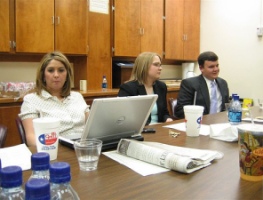“How can I be as successful as ….?” This is a question, that not just my daughters ask, but many of the young people I meet. Of course, this gives rise to the question “What is success?” No two people define success the same way.
While I’ve read and heard a variety of definitions, I feel, VR Ferose, the former Managing Director of SAP India said it best. Success is personal and often about yourself. To the young man who is the first in his family to have attended or graduated from college, that is a success. To the security guard at his company who’s the first, from his village, to have landed a city job that’s success. To the young woman who became the CEO of a tech firm, success is attaining that post.
So doctors, engineers, lawyers, politicians all believe various things that they have achieved or seek to achieve as their success. But is success even the right metric for our lives?
I’d argue, as Feroze did that day, that impact, what impact are we having or will have on others lives is a far better metric. Unlike success, where the focus is on you and your accomplishments, impact is about other people. “She’s created over 200 jobs, as an entrepreneur” or “He’s helped 30 kids graduate from college.”
Does this mean we should quit our jobs or not pursue “selfish” goals such as running a startup? No, absolutely not. But we should revisit how we measure what we do, what we believe as success in ourselves and others. Entrepreneurs are among the greatest contributors to society, whether simply as inspiration to others or in creating real impact on the ground it terms of wealth or job creation,
Does a Babajob, create new economic opportunities for those in the disorganized service sectors? Hell yeah! Does Vaatsalya enhance the quality of health care and life for folks in Tier 2 & 3 towns? Certainly. I’m sure you can think of many more. Of course, their being financially viable as a business is important to deliver the impact that they do. However, measuring or celebrating entrepreneurs and their companies as a success merely because they raised a round or their founders are cool is both limiting and unimaginative.
So what is the impact you and your organization are going to have today?









You must be logged in to post a comment.